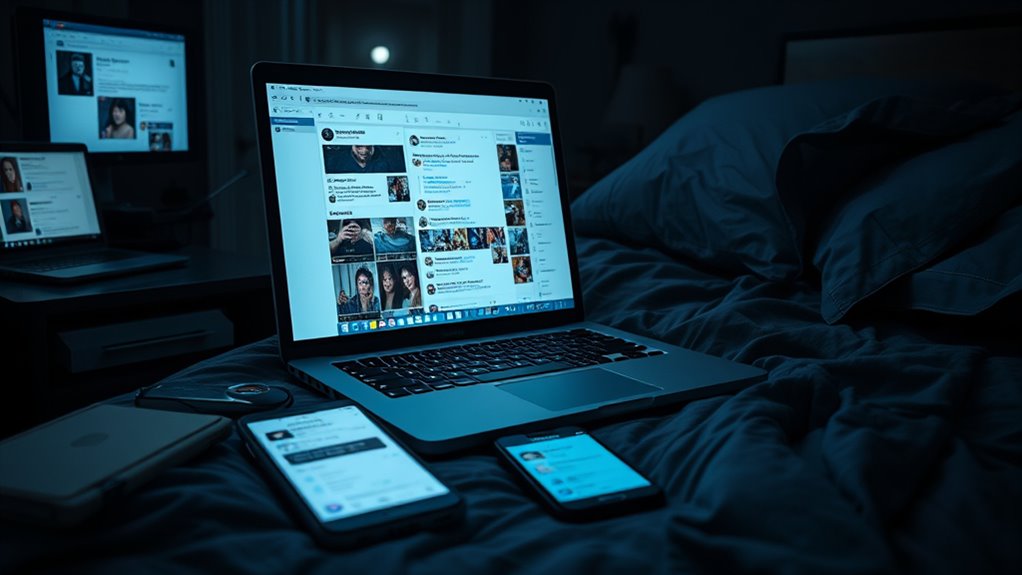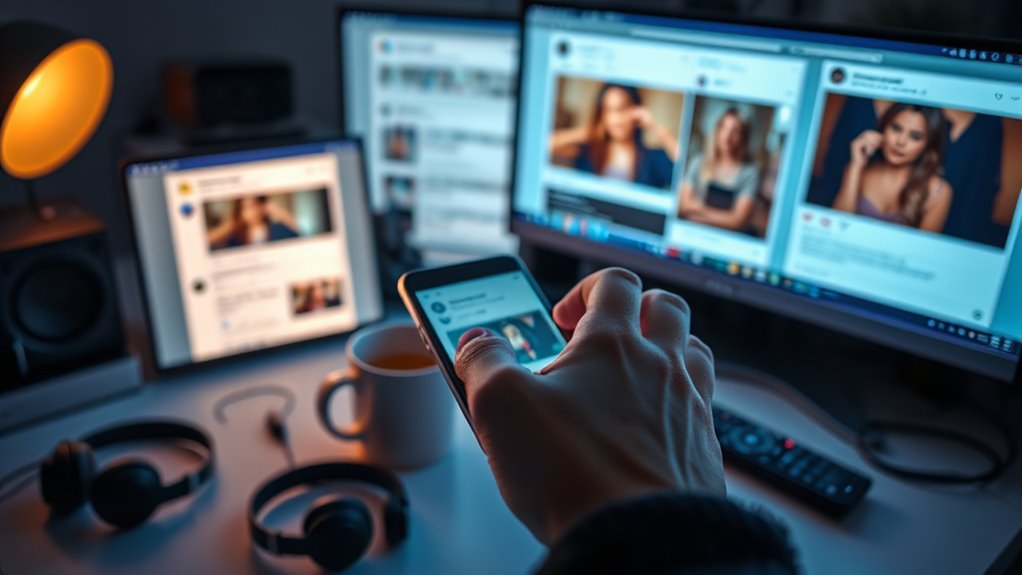Recent Trends: in the Digital Era, Social Media and Online Behavior Have Introduced New Grey Areas in Infidelity. a Viral Washington Post Piece Highlighted How Gen Z Is Grappling With “Micro-Cheating” — Small Online Acts (Like Liking a Sexy Photo or DMING Someone) That Feel Like Betrayals. There’S Also a Tiktok-Fueled Trend of “Loyalty Tests”, Where People Use Decoy Accounts to Test Their Partner’S Fidelity, Which Relationship Experts Warn Is Unhealthy. Forums Frequently Discuss Whether Things Like Heavy Porn or Onlyfans Consumption Count as Cheating – One in Five Divorce Cases Now Even Cite Online Flirtations on Platforms Like Facebook. Additionally, We’Ve Seen Cheating Scandals Go Viral, With Scorned Partners Publicly Shaming Cheaters on Twitter, Tiktok, Etc., Raising Questions About Privacy and Ethics. Pop Culture, Too, Plays a Role: Movies and TV Often Glamorize Affairs, Influencing Public Perception. the Titles Below Tackle These Timely Issues of “Media Infidelity,” Where Technology, Entertainment, and Infidelity Intersect
In today’s digital world, social media blurs the lines of fidelity with acts like liking provocative photos or sending flirtatious messages seen as micro-cheating. TikTok trends like loyalty tests using decoy accounts are risky and often deemed unhealthy. Online flirtations, heavy porn use, and platforms like OnlyFans are now linked to divorce and betrayal. Viral scandals expose private issues publicly, raising privacy concerns. Pop culture also shapes perceptions of infidelity—explore further to understand how technology impacts trust today.
Key Takeaways
- Micro-cheating behaviors like liking provocative photos or DMs are increasingly viewed as betrayals among Gen Z, challenging traditional fidelity norms.
- Online activities such as heavy porn use or OnlyFans consumption are debated as potential forms of infidelity, impacting relationship trust.
- Viral cheating scandals and partner exposés on social media raise ethical concerns about privacy and public judgment.
- Movies and TV shows glamorize affairs, shaping perceptions of acceptable infidelity and influencing public attitudes.
- Digital interactions and social media trends create new grey areas in defining loyalty and betrayal in modern relationships.

Have you ever wondered how media can betray your trust? In today’s digital era, social media and online activities have blurred the lines of fidelity in relationships, creating new grey areas that can be confusing and even dangerous. It’s no longer just about physical acts; now, seemingly small online behaviors can carry significant emotional weight. For instance, a viral Washington Post piece highlights how Gen Z is grappling with “micro-cheating,” where minor acts like liking a provocative photo or sending a flirtatious DM are seen as betrayals. These small gestures, often dismissed as innocent, can evoke feelings of distrust and insecurity, challenging traditional views of fidelity.
Social media’s ease of access fuels a culture where boundaries are constantly tested. The trend of “loyalty tests” on TikTok exemplifies this, where people create decoy accounts to secretly monitor their partner’s online interactions. Relationship experts warn that such tactics are unhealthy and rooted in insecurity, often escalating suspicion rather than resolving it. Meanwhile, forums are flooded with debates over whether certain online habits—like heavy consumption of porn or OnlyFans—qualify as cheating. Many argue that these behaviors, once considered harmless, now threaten the foundation of trust in modern relationships. It’s notable that one in five divorce cases now cites online flirtations on platforms like Facebook as a contributing factor, underscoring how digital interactions have become central to fidelity concerns.
Online habits like porn and OnlyFans now threaten trust, with one in five divorces citing social media flirtations as a factor.
The viral nature of online cheating scandals adds another layer to this complex landscape. When a partner is caught, their shame often spills into public view through Twitter, TikTok, and other social platforms. Partners publicly shame or expose each other, raising ethical questions about privacy and the boundaries of public judgment. These episodes reflect a shift where privacy no longer guarantees confidentiality, and social media acts as both a battleground and an audience. Additionally, the rapid spread of these stories demonstrates how media coverage can amplify personal betrayals, sometimes blurring the line between private matters and public spectacle. This phenomenon is also fueled by the rise of digital reputation, which influences how individuals navigate trust and betrayal online.
Pop culture also plays a significant role in shaping perceptions of infidelity. Movies and TV shows frequently glamorize affairs, normalizing betrayal and influencing how people view cheating behavior. This portrayal can distort reality, making some see infidelity as a thrilling or acceptable part of modern relationships. As technology, entertainment, and personal boundaries collide, the concept of media infidelity grows more intricate. It’s clear that digital life has redefined what fidelity means, often making it harder to distinguish between harmless flirtation and betrayal. In this new landscape, understanding how media influences perceptions of loyalty is vital, especially when social media and online behaviors continue to evolve rapidly.
Frequently Asked Questions
How Does Social Media Influence Perceptions of Infidelity?
Social media shapes your view of infidelity by blurring boundaries and making small acts feel like betrayal. Liking a photo or sending a DM can seem harmless but gets interpreted as cheating. Public shaming and viral scandals amplify perceptions, making infidelity seem more widespread. Pop culture also influences you, often glamorizing affairs, which can distort what you consider acceptable or unacceptable in relationships today.
What Legal Implications Arise From Online Cheating Behaviors?
Online cheating can have serious legal consequences. If your actions lead to a breakup, you might face divorce or custody battles, especially if infidelity is proven. Some jurisdictions consider online misconduct as grounds for divorce or legal separation. Additionally, sharing private images without consent or cyberstalking can lead to criminal charges. You should understand local laws and be cautious, as digital behaviors can now be used as evidence in court.
Can Online Infidelity Be Detected and Proven Effectively?
You can often detect online infidelity through digital footprints like suspicious messages, edited photos, or secret accounts. Using spyware or monitoring tools may help gather evidence, but you should be aware of legal boundaries. Keep in mind, online behaviors can be manipulated or hidden, making proof tricky. Open communication and professional help are often better approaches than solely relying on digital investigation for understanding the truth.
How Do Cultural Differences Shape Views on Media-Related Infidelity?
You might think cultural norms shape views on media-related infidelity, but the truth is, they deeply influence perceptions. In some societies, liking a provocative photo is seen as betrayal, while others view it as harmless. You’ll find that cultural attitudes dictate what’s acceptable online, affecting how people judge and respond to media-infidelity. Recognizing these differences helps you understand why reactions vary across cultures, revealing the complex relationship between culture and digital fidelity.
What Are the Psychological Impacts of Digital Betrayal on Individuals?
When you experience digital betrayal, it can deeply harm your self-esteem and trust. You might feel betrayed, anxious, or even paranoid about your worth and the relationship’s future. It’s common to question your value or worry about whether you’re enough. This emotional toll can lead to depression or difficulty trusting others again. Recognizing these feelings helps you process betrayal healthily, so you can rebuild confidence and seek support if needed.
Conclusion
As you scroll through these stories, you realize the line between loyalty and betrayal is blurring more than ever. Every like, message, or shared secret could be exposing a hidden truth or igniting a scandal. In this digital age, trust becomes fragile, and the next click might reveal something you never saw coming. Are you truly safe in this web of shadows, or are you already caught in a silent game of infidelity?









